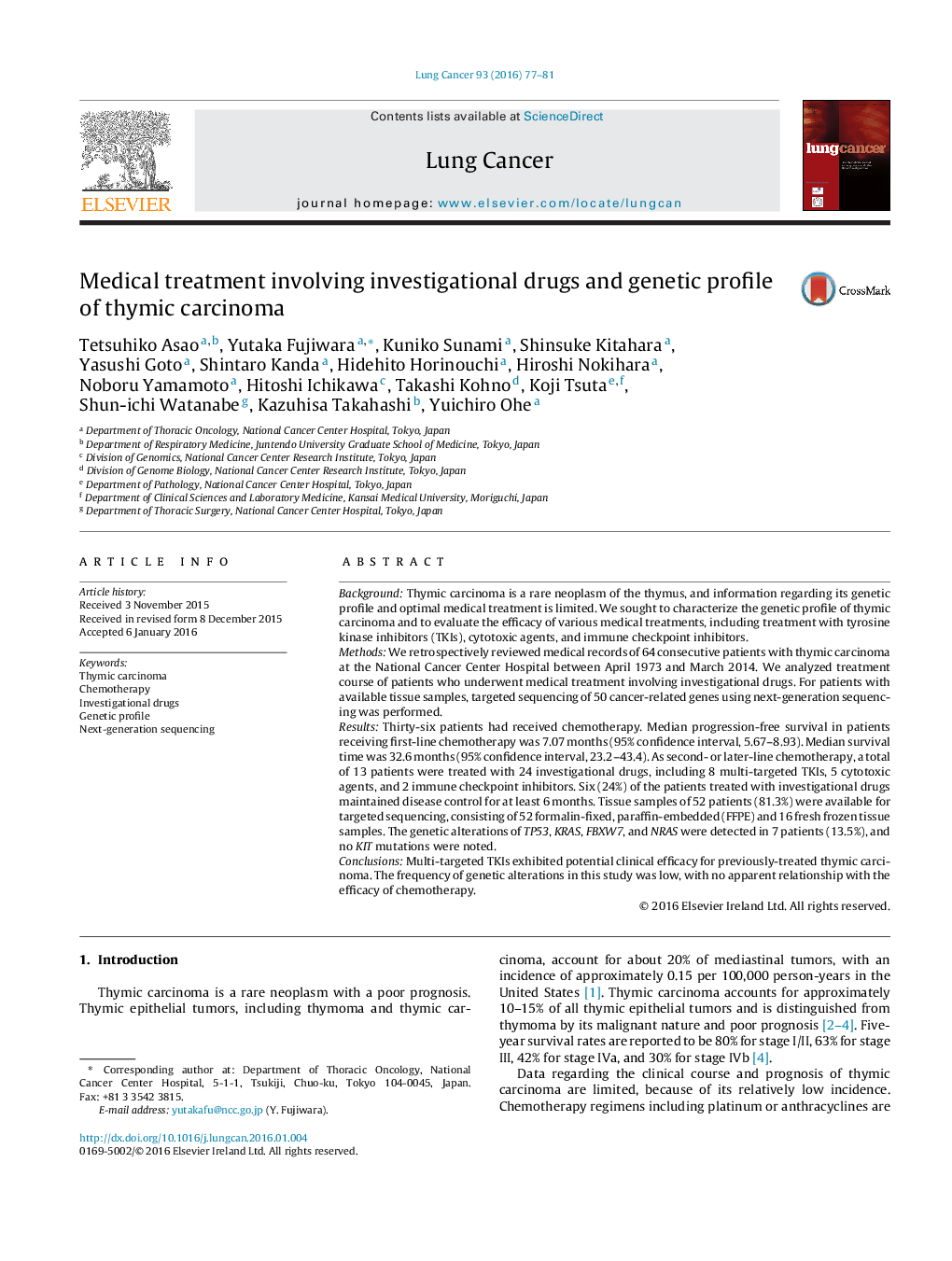| کد مقاله | کد نشریه | سال انتشار | مقاله انگلیسی | نسخه تمام متن |
|---|---|---|---|---|
| 2140446 | 1547974 | 2016 | 5 صفحه PDF | دانلود رایگان |
• Medical treatment and genetic profile of 64 thymic carcinoma were analyzed.
• Investigational drugs involving multi-targeted TKIs exhibited potential efficacy.
• Genetic alterations of TP53, KRAS, FBXW7, and NRAS were detected in 7 patients.
• No apparent relationship between genetic alteration and the efficacy of chemotherapy.
BackgroundThymic carcinoma is a rare neoplasm of the thymus, and information regarding its genetic profile and optimal medical treatment is limited. We sought to characterize the genetic profile of thymic carcinoma and to evaluate the efficacy of various medical treatments, including treatment with tyrosine kinase inhibitors (TKIs), cytotoxic agents, and immune checkpoint inhibitors.MethodsWe retrospectively reviewed medical records of 64 consecutive patients with thymic carcinoma at the National Cancer Center Hospital between April 1973 and March 2014. We analyzed treatment course of patients who underwent medical treatment involving investigational drugs. For patients with available tissue samples, targeted sequencing of 50 cancer-related genes using next-generation sequencing was performed.ResultsThirty-six patients had received chemotherapy. Median progression-free survival in patients receiving first-line chemotherapy was 7.07 months (95% confidence interval, 5.67–8.93). Median survival time was 32.6 months (95% confidence interval, 23.2–43.4). As second- or later-line chemotherapy, a total of 13 patients were treated with 24 investigational drugs, including 8 multi-targeted TKIs, 5 cytotoxic agents, and 2 immune checkpoint inhibitors. Six (24%) of the patients treated with investigational drugs maintained disease control for at least 6 months. Tissue samples of 52 patients (81.3%) were available for targeted sequencing, consisting of 52 formalin-fixed, paraffin-embedded (FFPE) and 16 fresh frozen tissue samples. The genetic alterations of TP53, KRAS, FBXW7, and NRAS were detected in 7 patients (13.5%), and no KIT mutations were noted.ConclusionsMulti-targeted TKIs exhibited potential clinical efficacy for previously-treated thymic carcinoma. The frequency of genetic alterations in this study was low, with no apparent relationship with the efficacy of chemotherapy.
Journal: Lung Cancer - Volume 93, March 2016, Pages 77–81
